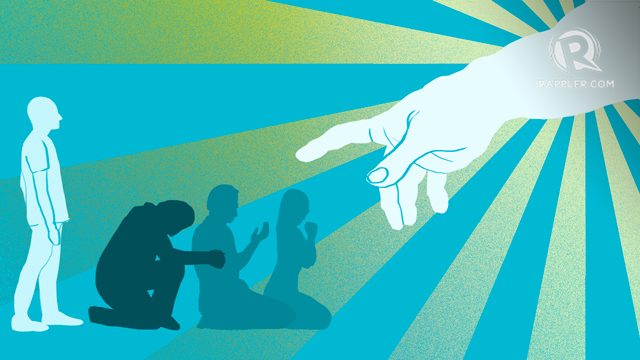SUMMARY
This is AI generated summarization, which may have errors. For context, always refer to the full article.
 My fiancée’s dream wedding has always been a small, private ceremony in San Francisco’s city hall. She will, fortunately for her, get her dream wedding, and, unfortunately for her, be stuck with me for the rest of her life. The civil ceremony abroad begs a question for some friends and relatives: So, when is the Church wedding and reception in the Philippines?
My fiancée’s dream wedding has always been a small, private ceremony in San Francisco’s city hall. She will, fortunately for her, get her dream wedding, and, unfortunately for her, be stuck with me for the rest of her life. The civil ceremony abroad begs a question for some friends and relatives: So, when is the Church wedding and reception in the Philippines?
It won’t happen, we tell them. For one, we are too shy for large, bourgeois affairs in the Pinoy mold – petrified by the monolith that is the wedding/industrial/same-day-edit complex. And, of course, there’s that other thing of me being an agnostic. Not a problem, many of my friends say. In the Philippines, even lapsed Catholics and nonbelievers get Church weddings, because that’s just what you do.
Catholicism is a cultural norm, not just a set of beliefs. My similarly agnostic and then communist mother was forced into a Catholic wedding (actually into matrimony, since she just wanted to live in), because it would have been shameful not to have one. And my parents, of course, had to get me baptized.
Catholicism is influential in this country because it is a default setting. As a consequence, people rarely grappled with it. For many believers, their faith is wallpaper. And when was the last time people had a debate about the state of their wallpaper? Yet the wallpaper of Catholicism shapes our society in profound ways. It can cause harm by denying contraceptives to poor women. And it can save lives by sheltering the “adiks” that Duterte seeks to kill.
The advantage of the nonbeliever is a certain distance. Over the years, I have watched Philippine Catholicism from the outside, but also the inside. I grew up in a secular household: Papa is a non-practicing believer and Mama believes that the only humble response to the question of God’s existence is “I don’t know.”
I was also raised by my maternal grandparents, who discovered agnosticism together as they discovered the depths of their ever-deepening love. Both academics, their favorite philosopher was Bertrand Russel and one of their favorite books was Russel’s Why I am not a Christian. Lolo and Lola died unsure where they were going, but sure of their love for each other.
Unlike many of my nonbelieving friends, I did not stumble upon secularism; I was born into it. And whenever I explored Catholicism, it was always with a sense that I was wading into a tradition not my own. Studying from prep to college at Ateneo, I of course had to learn the faith – a faith I professed as a grade school kid, not wanting to feel excluded. By high school, I was outwardly a secularist, but learned to shut up about this fact since my classmates teased me for being an “atheist” (an agnostic is not an atheist).

Early in college, I was attracted to Catholicism anew. I loved my theology teachers, who presented a version of the faith that satisfied both my intellectual curiosity and my incipient social consciousness. For some reason, I was also more open to the notion of God. I remember meeting an old high school friend who had started studying at UP. She told me that UP was forcing her to question her faith, and I sincerely replied that Ateneo was forcing me to question my non-faith.
I closed the door to Catholicism late in college as I grew more confident in my skin, believing I could confront moral issues on my own by studying philosophy and literature. Through Aristotle, I discovered the virtue of dedication to a political community. Through Foucault, I learned that multiple people could be marginalized in multiple ways. Through Austen, I discovered warmth and the quiet beauty of daily acts of kindness. I value my personal morality as much as believers value their faith-based morality.
In grad school, I had already weaned myself from faith, and any openness to Catholicism dissipated as the reproductive health (RH) wars reached their crescendo. During my experiments in faith, I grew to love the Catholicism of liberation theology: it addressed the pressing issues of inequality and social marginalization. It was a faith of justice. It was practical, real. But I found the sex-obsessed, anti-RH Catholics strange. Why waste so much energy denying adults consensual fun? No condoms, no premarital sex, no living in, no masturbation, no gay sex – all are prohibitions anchored more on St. Augustine’s bizarre notion of guilt than they are on coherent beliefs about human development.
So when Duterte started cursing the Church, he did so at a good time for a politician. The RH debates had turned off even some true believers. The anti-RH campaign exposed the bishops as bullies, who sought to impose their will on secular politics, denying scientific evidence in the process. At no point had the Catholic Church in the Philippines been so weak against a secular leader.
But Duterte is also an opportunity for the Church to make itself relevant. As Sheila Coronel writes, priests are now the first line of defense for the poor threatened by Digong’s war on drugs. These days, I feel more warmth whenever I enter a Catholic church or a chapel. I know these places and the institution that runs them have become sanctuaries for the poor, the excluded, the “subhuman.” The Church recognizes their dignity because it sees in them the image and likeness of God. Unlike the callous horde that simply view them as refuse.
We are now witnessing Catholicism at its best. Those from the faith would do well to reconnect with their faith today, and join their Church as it tells those who suffer that they too may partake of the kingdom of God – distant but ever present. As for me, I remain an outsider and an observer. But I observe with a growing sense of admiration. Those in the sidelines are, after all, permitted to cheer. – Rappler.com
Lisandro Claudio (@leloyclaudio on Twitter) teaches history at De La Salle University and hosts the Rappler web show Basagan ng Trip.
Add a comment
How does this make you feel?
There are no comments yet. Add your comment to start the conversation.